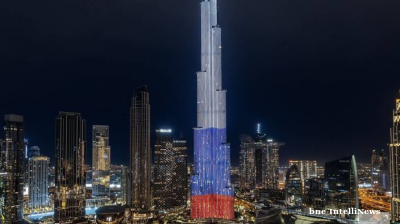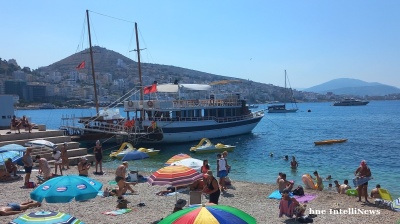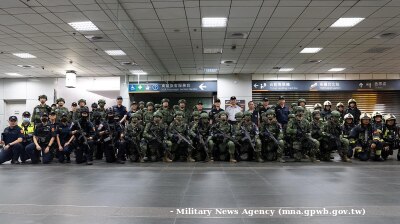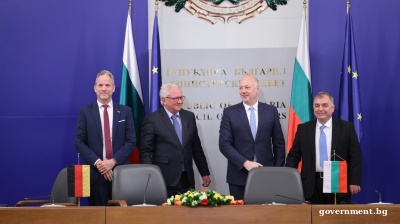The Czech Republic has long chafed at what it regards as the European Union’s overly critical attitude towards Israel. Now, as the current rotating president of the European Union, Prague may have a chance to change this by convening a meeting of the long moribund EU Israel Association, which will take place on October 3 in Brussels.
Israeli Prime Minister Yair Lapid will lead the Israeli side in the talks, while the EU delegation will be led by High Representative for Foreign Affairs and Security Policy Josep Borrell.
Why are the Czech Republic and other post-communist Central and Southeast European countries such staunch supporters of Israel? And will Prague be able to shift the EU’s foreign policy stance towards Israel or are there just too many obstacles in the way?
Czechia is probably the most enthusiastic supporter of Israel in the EU. Czechia and other strong supporters of Israel such as Romania have long tried to protect Israel in votes in the EU and at the UN. For example, when former US president Donald Trump moved the US embassy in Israel to Jerusalem in 2018 – even though the eastern half of the city is internationally regarded as occupied territory – Czechia, Hungary and Romania vetoed any EU criticism.
In contrast to the rest of the EU, Eastern Europe does not believe solving the Palestinian issue should be decisive for the bloc’s relationship with Israel, a stance the Jewish state obviously welcomes.
“There is no doubt that Israel has an interest in hoping that its strong relationship with countries like Czechia, Romania and so on will help to support Israel within the EU,” Azriel Bermant, senior researcher at the Czech Institute for International Affairs (IIR), told bne IntelliNews in an interview.
Lack of empathy
In Czechia, among politicians, the foreign policy establishment and journalists, and from the far right to liberals and across to the traditional Social Democratic left, there is broad support for Israel. This is helped by the fact there are few big disagreements with Israel, which is not the case with Poland's current radical right government for example, where there are angry arguments over the country’s role in the Holocaust.
To Western European eyes at least, there is also an astonishing lack of empathy for or even interest in the suffering or rights of Palestinians under what is now 55 years of occupation.
When Israel launched a brutal assault on Gaza in 2021, Czech Social Democrat Foreign Minister Jakub Kulhanek immediately flew to Israel and declared: "The state of Israel is facing an outrageous, barbaric attack. I want to express support and solidarity for the state of Israel, which has a clear and inalienable right to defend itself. That’s why I will be hanging the Israeli flag on the Czernin Palace [the Czech foreign ministry].”
In a web seminar last month organised by the Czech Institute for International Affairs (IIR) and the Israeli Institute for Regional Foreign Policies (Mitvim), Czech Ambassador to Israel Martin Stopnicky defended not just Israel’s right to attack military targets in neighbouring countries, but also its muted criticism of Vladimir Putin’s invasion of Ukraine. “These critics should realise Israel is in a constant war,” he said.
When she replied, Anna Azari, Israeli ambassador to Prague, kept her remarks brief, joking “the Czech ambassador gave all the explanations we give when we are criticised”.
Moreover, in Czechia even raising the suffering of the Palestinians risks ending your political career.
“It is part of the Czech foreign policy tradition, probably the only one that has not been challenged,” Irena Kalhousova, head of the Herzl Centre for Israeli Studies at Charles University in Prague, told bne IntelliNews in an interview. “If challenged, that person usually suffers.”
Tomas Tozicka, a candidate of the liberal Pirate party for the upper house, was forced to step down in 2020 because of his past description of Israel as a “fascist state”.
There was also an outcry in May 2020 when Social Democrat Foreign Minister Tomas Petricek, together with two former foreign ministers, signed an open letter criticising Israel’s plans to annex Jewish settlements in the occupied West Bank. Israel’s continued occupation of the West Bank since the 1967 war has long been deemed illegal by the United Nations and the EU, and even Prague backs a two-state solution to the Palestinian problem, at least on paper.
Czechia’s populist President Milos Zeman – who once compared the late Palestinian leader Yasser Arafat to Adolf Hitler – has often tried to stifle any debate on the issue. As Social Democrat prime minister in 2002, he stopped his leftwing foreign minister Jan Kavan from meeting Arafat. As president, last December he tried unsuccessfully to block Jan Lipavsky from becoming foreign minister, fearing his attitude towards Israel was not staunch enough. After he was forced to back down, he has refused to meet Lipavsky. Zeman continues to push for the Czech embassy to be moved to Jerusalem.
Deep roots
Like many aspects of politics in Eastern Europe, this strong support for Israel has deep historical roots. Across the region, attitudes to Israel today are very much shaped by shame over the Holocaust, which largely took place in the region, together with a desire to take a diametrically opposed stance to that of the post-war communist regimes.
Many of the countries of the region feel a strong need to make amends for their history. In the interwar period most of the region was ruled by right-wing authoritarian regimes that were usually antisemitic.
Czechia, the only liberal democracy in the region before the war, was a signal exception: Czechoslovakia’s founder, President Tomas Garrigue Masaryk, was a strong supporter of a Jewish state in Israel, and the country’s arms exports to the fledging late were vital in its 1948 war of independence.
During the second world war, fascists and local collaborators in several future Eastern EU countries – notably Hungary, Slovakia, Romania, Croatia, Bulgaria and the three Baltic states – helped the Nazis exterminate Jews.
After the war, the communist regimes installed by the Soviet Union followed Moscow’s “anti-Zionist” foreign policy, shunning Israel and building links with Israel’s Arab enemies, including Arafat’s Palestinian Liberation Organisation. An exception here was Nicolae Ceausescu’s Romania, which followed its own foreign policy and was the only communist country not to break off relations with Israel.
After the collapse of communism in 1989, Central and Southern Europe wanted to draw a thick line under their previous foreign policies, and show their new allegiance to the US and the West.
Israel is a rare parliamentary democracy in the Middle East (though Israeli Arabs have less rights than Jews) and a US ally. Supporting Israel was therefore seen as offering proof of their new Western and democratic orientation. For the Czech Republic supporting Israel would also represent a return to the ideals of the First Republic in the interwar period.
For those countries that had participated in the Holocaust, supporting Israel would function as a kind of belated apology, which would also be useful in proving their new credentials in Washington.
However, the Holocaust remains an extremely sensitive issue – notably in Poland, Hungary, Croatia and the Baltic states – because rightwing politicians often still revere their interwar or wartime forebears and deny their involvement in the Holocaust. They regard their country as another victim of the Nazis rather than an accomplice.
This issue continues to detonate from time to time, damaging relations both with Israel and the US. Poland’s ruling Law and Justice Party insists that the country should be viewed solely as a victim, and has made it a criminal offence to accuse Poles of being complicit in Nazi crimes. Last year Israel also recalled its ambassador over a law that it perceived as limiting Jewish restitution claims, though relations have since been restored.
Uncompromising approach
Modern Israel is admired by Central and Southeast European countries for its uncompromising approach to its own security and its military prowess. They see this as the right approach also for Europe, against both Islamic terrorism and enemy states such as Russia, and they believe Vladimir Putin’s invasion of Ukraine has just shown how right they are.
The Eastern Europeans defend the way Israel launches attacks on hostile neighbours and terrorist bases, as well as its repression of Palestinian resistance in the West Bank and Gaza. They have forged military and intelligence links with Israel, which has become a significant arms and security supplier to the region, as the recent scandals over the use of Pegasus spyware against domestic opponents has revealed.
Israel’s tough approach is envied because it contrasts so markedly with Eastern Europe’s own weakness and helplessness under Soviet rule. For the Czechs, for example, Israel’s stunning victory against its neighbours in the 1967 Six-Day War came just before their own failure to resist the invasion by their Warsaw Pact neighbours in 1968 – which became a formative event for many of the politicians who rose to power after 1989.
“Israel has this image that it is a country that can defend itself,” says Kalhousova. “The Czechs in their history didn’t.”
Given the country’s previous trauma at Munich in 1938 – when Britain and France helped persuade Czechoslovakia to cede the Sudetenland border regions to Nazi Germany – Czech politicians are understandably sceptical of European pressure on Israel to seek peace by ceding territory to the Palestinians (even if the occupied territories, by contrast with the Czech Sudetenland, had never in recent history been part of Israel).
Over the past few decades Czechs have consequently built up close security ties with Israel. Earlier this year the government bought Israeli radar, and the two countries co-operate closely in efforts to combat cyber-attacks. There are close people-to-people links, for example in academia, and Israel is Czechia’s biggest trade partner in the Middle East, with carmaker Skoda Auto particularly successful there.
The ties between Israel and Central and Southeast Europe became even closer when Benjamin Netanyahu returned to power in Israel in 2009. He forged a “populist alliance” with radical rightwing leaders in the region, notably Hungary’s Viktor Orban. Netanyahu cultivated these links as a way of demonstrating that the EU was divided over the Israeli-Palestinian conflict; Orban used them simply as another issue to divide Europe.
The Israeli and Hungarian premiers and their rightwing supporters also linked the wave of Syrian refugees in 2015 to the spate of Arab terrorist attacks in Europe. For Netanyahu, this narrative could be used to discredit Arab and European critics of Israel; while for Orban and other radical rightwing leaders, it would whip up fears that they could pledge to defend their peoples against.
For Netanyahu, these links were much more important than traditional Israeli concerns over the Holocaust or East European anti-Semitism. In 2017, he even slapped down the Israeli ambassador to Budapest over his criticim of Orban for putting up anti-semitic billboards depicting bogeyman George Soros, the liberal US-Hungarian philanthropist, who both strongmen see as an enemy.
Stars in alignment
However, more liberal Israelis argue this populist alliance has damaged the country’s democratic credentials. Certainly, Netanyahu’s mischief-making inside the EU, as well has his crackdowns in the West Bank, were both key reasons why Brussels put the EU Israel Association on ice in 2012.
As the current holder of the EU presidency, Prague now hopes that the stars are in alignment for resuming this dialogue, not least because Netanyahu has since been succeeded as premier by Lapid.
“Lapid has reversed Netanyahu’s policy of improving relations with Orban’s Hungary which damaged Israel’s reputation as a democracy,” says Bermant. “He has taken a much more pragmatic attitude, he wants to create a dialogue with Europe and not create divisions,” he added.
Last year the then Israeli foreign minister Gabi Ashkenazi attended the European Council in Berlin, the first time an Israeli had done so.
“EU and Israeli relations have improved quite significantly in the past year because of the new Israeli government,” Maya Sion-Tzidkiyahu of Mitvim told the IIR/Mitvim webinar. “The disagreements still remain but Israel is perceived now much more as an ally,” she added.
With a two-state settlement looking as far away as ever and with the Ukraine crisis making it seem less important, Prague hopes that the EU will put the issue of a final peace deal to one side and try to make progress on other issues.
Radomir Karlik of the Czech Ministry of Foreign Affairs told the webinar that Prague had been pushing for the resumption of the dialogue for a long time. “We have the feeling that the prolonged absence of the Association Council deprived the EU of an adequate instrument of dialogue with Israel,” he said.
Using the opportunity
The EU is also more amenable to building wider links with Israel because Arab states themselves have begun doing so. Under the US-mediated Abraham Accords in 2020, Israel established full diplomatic relations with the UAE and Bahrain, marking the first normalisation of relations with Arab countries since 1994. This year Turkey has also re-established full diplomatic relations.
Brussels, which was initially blindsided by the accords, now appears to see them as an opportunity.
“The EU is tired of this idea that we can’t move forward without a peace deal with the Palestinians," says Kalhousova.
Brussels is now looking to use the improving relations between Israel and Arab countries to push forward its own European Neighbourhood Policy in the Middle East and North Africa on key issues such as food security and climate change.
“The EU thought if the Arab countries are doing this, maybe it is in our interests to start a new policy with Israel,” says Bermant. “I think the EU is coming round to the idea that the Abraham Accords is a reality and there is an opportunity they can use to their advantage,” he adds.
In August there were discussions between the EU, Morocco and Israel over water, and both Brussels and Israel hope to expand this format of co-operation to other issues. Israeli Ambassador to the EU Haim Regev told the IIR/Mitvin webcast that oil and food security were potential future topics.
In terms of bilateral relations, EU countries remain particularly interested in Israeli technology and science. Israel is already associated with EU scientific bodies such as the Framework Programmes for Research and Technological Development and the European Organisation for Nuclear Research (CERN), and is part of the EU’s global navigation system Galileo.
For Emerging European countries, Israel’s vibrant start-up culture is another big big draw, and the countries of the region dream of somehow transferring this entrepreneurial energy back home.
The desire to cut energy links with Russia following Putin’s invasion of Ukraine has provided another strong reason for improving links with Israel, which is developing its gas reserves. European Commission President Ursula von de Leyen visited Israel in June to discuss potential Israeli gas exports to the EU, in a trip notable for her lack of criticism of Israeli policy in the occupied territories.
Ambivalent position
The continuing Israeli crackdowns in the occupied territories remain the biggest obstacle to improving relations. For European progressives, this remains their most important concern, and they have enough support in the European Parliament to keep the issue alive. The EU is still the biggest financial backer of both the Palestinian state and the non-governmental organisations there – some of which were recently closed down in the latest Israeli crackdown.
Differences also remain over the EU’s drive to rebuild the Iran nuclear deal and lift sanctions on Teheran after Trump withdrew from the JCPOA accord in 2018. Israel remains uncompromising on any deal with Iran, but this is less of an obstacle at the moment, given that the ongoing talks appear to be blocked.
Ironically, Israel has attracted most criticism recently over an issue that Eastern Europe is particularly deeply concerned about: Putin’s invasion of Ukraine. Israel was perceived as taking an ambivalent position on the invasion and sanctions. This reflected the way Israel does not want to endanger its improved relations with Russia – which it sees as vital to its interests in the Middle East, notably in Syria – but it went down very badly among Israel’s supporters in Eastern Europe, who were baffled, given Israel’s usual strong stance on security.
This difference over Russia could become even more pronounced were Netanyahu to return to power in Israel’s general election next month. His warm relations with Putin could alienate former supporters in frontline states such as Poland and Romania. “If Netanyahu maintains close relations with Putin this will cause huge problems,” says Bermant.
In fact Netanyahu’s return could make the whole Czech initiative to revive the EU Israel Association stillborn, deepening divisions between Brussels and Israel once again. “If Netanyahu is re-elected there won’t be much of a follow-up, says Kalhousova.
“The window is so short I’m not sure how much of a difference they can make,” agrees Bermant. “But the resumption of the dialogue is itself a positive outcome.”
Features
KSE: Ukraine is facing a $53bn budget shortfall, but economy is stable for now
Ukraine is in urgent need of additional financing from partners as the continuation of the war drives up defence spending and reconstruction needs, jeopardizes budget financing, weighs on the balance of payments, and slows economic growth.

PANNIER: Ruling family’s ‘palace in the sky’ cruel sight for Turkmenistan’s poor souls down below
Photos posted of renovated Boeing by US makeover manager offer further insight into "ultra-luxurious" world enjoyed by Berdimuhamedovs.

Russia tax service targets Russian accounts in UAE
The Russian Federal Tax Service (FTS) has ramped up its scrutiny of Russian nationals holding accounts in the United Arab Emirates, following the effective implementation of automatic tax information exchange between the two countries.

INTERVIEW: Can Albania’s tourism miracle last?
As social media brings in the crowds, the head of the Albanian Tour Operators Association tells bne IntelliNews Albania should turn away from mass-market tourism and focus on higher-value offerings.




